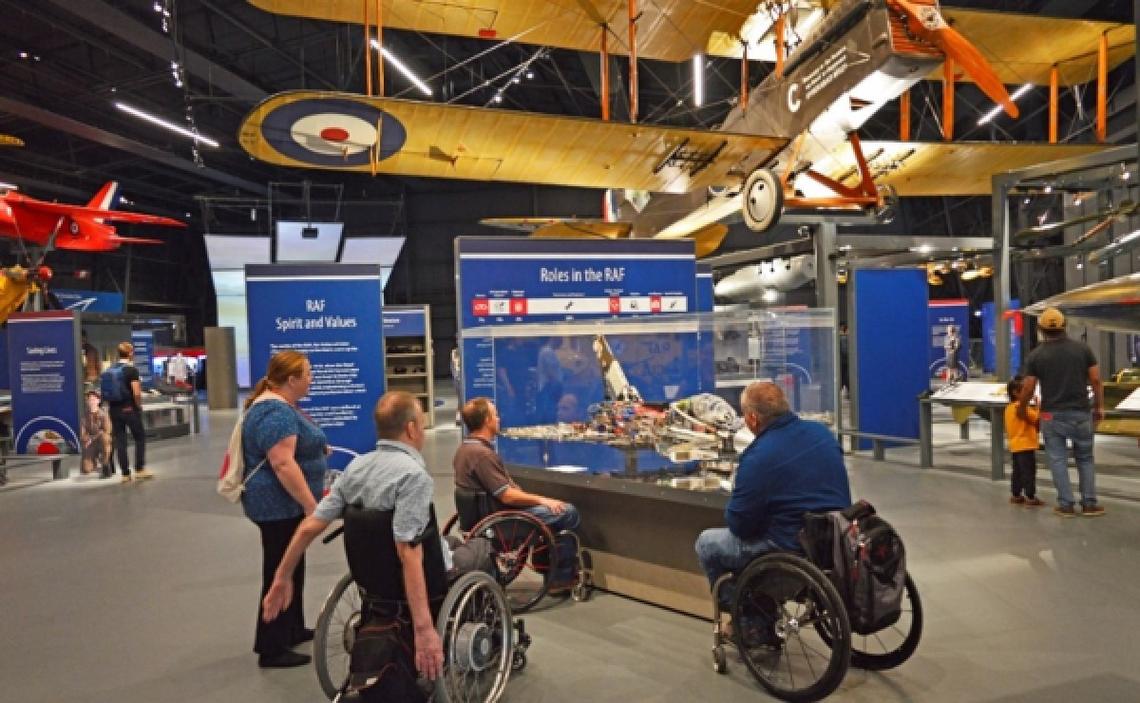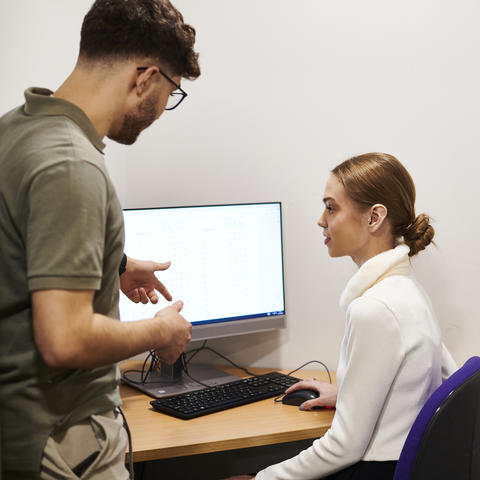What You'll Do:
- Giving the Museum your opinion and advice on matters relating to access.
- Contributing to tangible improvements and changes at RAF Museum London.
- Attend group meetings three times per year (on dates agreed in advance). You can opt to attend on site or online. Meetings last for approximately two hours and are usually held during Museum opening times (10am – 5pm). We may also send occasional emails asking for advice and opinions. It is expected that the next meeting will take place in mid to late June 2024.
Why You'll Love It:
- Helping heritage to be accessible to all.
- Becoming part of a great team of volunteers and staff
- Discounts at our retail outlets and café.
- Free access to flight simulator, 4D and virtual reality experiences.
- Travel expenses reimbursed up to £14.50 per day, in line with our policy.
- Free entry to a wide range of museums and heritage sites across the UK.
What You'll Learn:
- Discover more about the history of the RAF, its exhibits and collections.
- Behind the scenes experience of the museum and heritage sector.
What We're Looking For:
- Live/have lived with a disability or have an understanding of living with a disability, or live with dementia or are supporting/have supported someone living with dementia.
- Have an interest in museums and a commitment to making museums accessible.
- Have the ability and willingness to use your experience to help us improve access throughout the Museum.
- Are committed to attending three meetings per year either online or at the RAF Museum in Hendon.
Similar Opportunities
Digital Champion
Screen Share UK
Min. 4 Weeks Minimum weeks

Digital Champion
Volunteering
Mentor
Refugees
Marketing Material Designer
No Panic
Min. 0 Weeks Minimum weeks
Marketing Material Designer
Volunteering
Marketer
Mental Health
Communication Support Volunteer
Aphasia Re-Connect
Min. 5 Weeks Minimum weeks

Communication Support Volunteer
Volunteering
Supporter
Health
The aim of this communication support role is to have better conversations, and to support people with a communication disability, aphasia, to live life well. Aphasia is secondary to a stroke or brain injury or illness.



